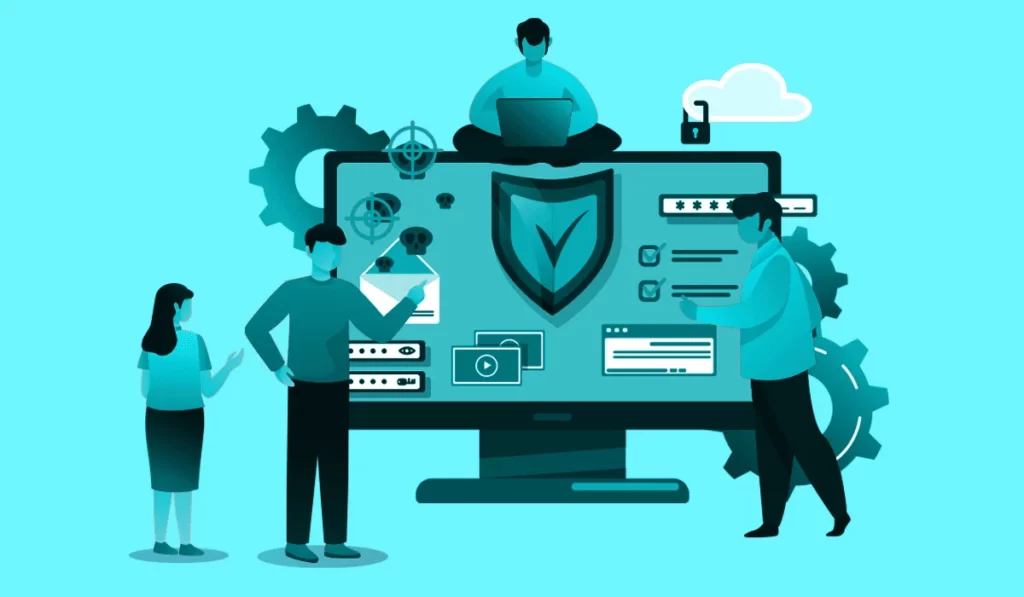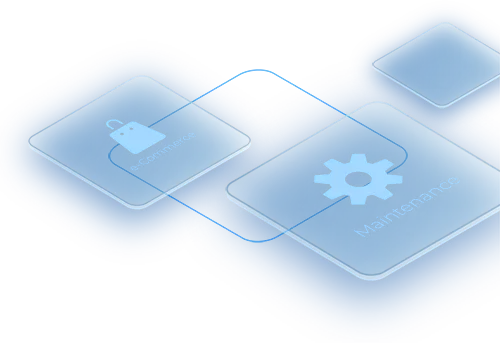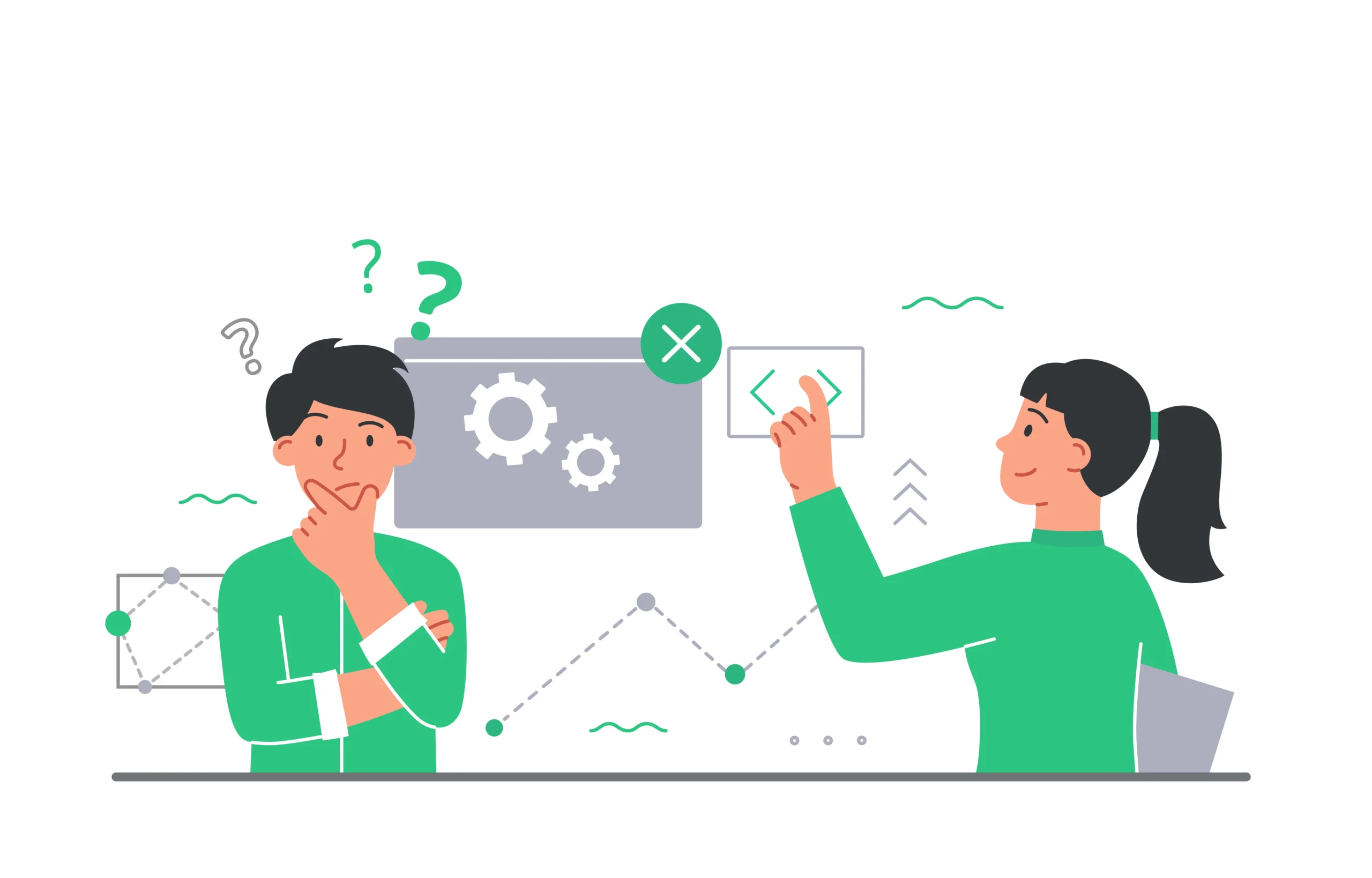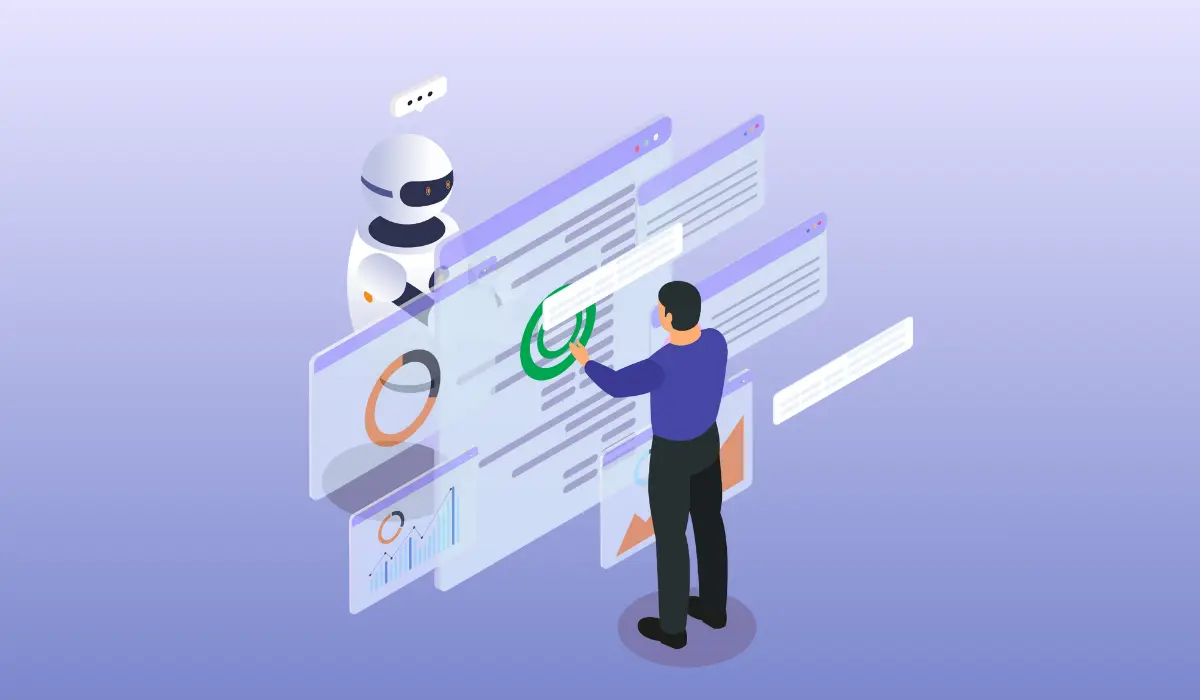Maintaining the security of this data is crucial in the fields of human resources and payroll management, where enormous amounts of financial and personal data are saved and processed.
In this article, we’ll look at the main strategies and recommended practices that businesses can use to protect sensitive data’s confidentiality and integrity in payroll and HR software.

What Is HR and Payroll Software?
Any technological system created with human resources in mind and used by them to manage personnel is referred to as HR software.
These systems also referred to as human capital management software, offer numerous HR functionalities. These tools include performance management, administration, and management information.
Payroll software is a solution, whether hosted on-site or in the cloud, designed to oversee, sustain, and streamline employee payment processes.
Businesses of any size can assure compliance with tax laws and financial rules while minimizing costs by using strong, integrated, and properly configured payroll software.
As a result, human resources (HR) departments are freed up from everyday tasks, allowing them to devote more time to strategic tasks like planning, budgeting, and other forward-thinking corporate activities.
The Importance of Data Privacy and Security in HR and Payroll Software
Payroll data includes a variety of information about employees and the costs related to maintaining a workforce, tax liabilities, and other pertinent data obtained from the payroll process.
Private employee data on pay and benefits is protected by payroll security. Names, Social Security numbers, addresses, taxes, health insurance, deductions wages, bonus payments, vacation time, hours, and sick days are all included in this.
Put in place a number of precautions to protect against cyberattacks, leaks, and unauthorized access.
Confidentiality, trust, and reputation are all protected by placing a high priority on data protection.
In an employee handbook, you may lessen the possibility of errors or confusion by giving thorough and understandable information.
Additionally, it makes it possible for you to adhere to local, state, and federal legislation, particularly those that deal with taxes, Medicare, Social Security, and fair labor practices.
Any personal information pertaining to staff members, including applicants, employees, trainees, or temporary employees is referred to as HR Data.
Due to unethical business practices by firms seeking real data, data breaches are on the rise, raising the risk of cyberattacks.
These assaults have the potential to destroy enterprises by disrupting operations, costing money, and harming their reputation.
Which is one of the reasons you need cloud-based HR and payroll software. With data security, cloud-based HR systems provide a way to reduce risk and expense.
For data privacy and security in cloud HR software, implement a strong password policy with complex passwords including capital letters, lowercase letters, numbers, and special characters.
Enforce password expiration periods for regular updates. Second, add two-factor authentication (2FA) to cloud HR software for added protection.
In order to avoid cyberattacks, it entails asking for a code after entering a username and password and using fingerprint or biometric scans or real-time PIN generators via SMS or email.
Another essential technique is data encryption. Data is transformed into codes using keys and algorithms, rendering it unintelligible unless decrypted.
Lastly, conducting security audits and testing is crucial for maintaining data security. A security audit involves assessing the server and cloud system’s applied security measures and comparing them to established requirements.
Data privacy and security in HR and payroll software are paramount to safeguarding sensitive employee information and ensuring compliance with data protection regulations.
Role-Based Access Control
Organizations use role-based access control (RBAC) as a method to manage system access by granting different levels of access to people according to their work functions.
This system protects sensitive data and guarantees that employees can only access the resources required for their particular tasks.
According to RBAC, each employee is given a certain role, such as an administrator, specialist, or end-user, which establishes their access rights to the system.
Administrators, for example, may have wide permissions to create or change files, whereas end users may simply have reading rights. RBAC’s main goal is to maintain data security by limiting access to only authorized individuals.
Organizations reduce the risk of unauthorized access and exploitation of sensitive information by allocating certain roles and permissions.
By offering a centralized framework for role and permission assignments, RBAC streamlines access management for organizations, enabling efficient monitoring and control over system access.
This is essential for precisely tracking and speedy access privileges modification when required.
Additionally, RBAC adoption helps organizations follow data protection laws. It makes sure that access controls follow the rules outlined by these laws, which are intended to protect people’s private information and respect privacy.
Data Encryption
Data encryption is a technique used to safeguard the confidentiality of data by transforming it into encoded information, known as ciphertext.
Only a specific decryption key, which is either generated during encryption or beforehand, can be used to unlock this encoded data.
To make sure that only authorized users have access to the encryption keys, data encryption is frequently used in conjunction with authentication procedures while storing or transporting data.
Strong data encryption techniques can be used to improve data privacy and security in HR and payroll software
Why Is It Significant?
Attackers now find data to be more appealing and accessible, which increases the need for security measures.
Furthermore, many companies are required to abide by data protection laws, some of which expressly call for the use of encryption.
In addition to the obvious benefits of increased security, preserving privacy, and preventing unauthorized access, encryption is essential for maintaining data integrity.
It protects content from unauthorized changes and can be used to verify the legitimacy and source of data.
How to Safeguard Your Sensitive Data?
Some of the finest techniques to safeguard your sensitive data include the ones listed below:
- Take Charge Of Sensitive Information
- Data encryption
- Implement a password manager
- Backup Your Data
- Make physical records and devices secure
- Use A VPN on public WiFi
- Always stay current
Once you’ve narrowed down your list of software solutions, it’s time to compare their features and pricing. You can make sure that the EBR HR and payroll software you select fits your needs perfectly.
EBR software solutions can significantly improve organizational efficiency by streamlining administrative procedures.
Conclusion
In conclusion, safeguarding data privacy and security in HR and payroll software is crucial to protect sensitive employee information and meet legal requirements.
By prioritizing data protection measures, organizations can mitigate the risk of data breaches and maintain the trust of their employees and stakeholders.








